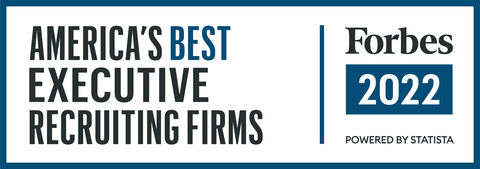Never give up searching for the
job you're passionate about
Many Job Candidates Forget To Prepare For This Important Part Of The Interview
Kevin Wu, Co-founder and CEO at Pathrise, helping students and young professionals around the country land their dream jobs

Photo: GETTY
When the moment finally comes, and you get that call or email from a recruiter asking you to schedule an interview, a lot of thoughts probably cross your mind — excitement, anxiety and the pressure to prepare so you can show your best self to the interviewer.
In my job running a career accelerator where we work with hundreds of people on their job searches, we spend the majority of our time on interview preparation. For most roles, candidates participate in technical and behavioral interviews with a variety of team members.
When we work with fellows in our program, we start by explaining the merits of practicing for technical interviews through online questions and company-specific questions, if they can find them. We also help them keep in mind the value of preparing for behavioral questions and showing a good understanding of the mission, values, culture and products of the company with which they are interviewing
However, even if you’ve prepared for all types of interview questions, you still have work to do. Once you have practiced the questions and written down your responses, you might think you are ready for the interview. If that is the case, you, like many others, are missing a very important part of your preparation: the questions you will ask at the end of the interviews.
Every interviewer leaves time for questions at the end of the session, yet so many people forget to prepare what they will ask. The worst thing that a candidate can do is say, “I think you’ve answered all of my questions.” When you ask thoughtful questions, you signal to the interviewer that you are passionate about the role and driven to learn more. In addition, it gives them the sense that you are likely to remain interested for the long-term.
Instead, take time when you are researching the company to come up with some mission- and value-driven questions you can ask the interviewer to enhance your cultural fit. For example:
• Discuss a company update you recently read, and ask how it might relate to the work being done. This lets the interviewer know that you are keeping up to date.
• Ask about how the values fit into the culture and work experience. This lets them know that you did research on the company before coming in.
You should also ask questions that are specific to the team with which you are interviewing. These questions should relate to how the team works, what types of tools and technologies they use, and how you would contribute to the success of the team if you were to join. I also recommend that you ask proactive questions, such as, “What would my first task be if I were to start tomorrow?”
Finally, you should ask questions that will actually help you learn more about the role so that you know if it is a good fit for you. Some topics that you can ask about are:
• The amount of responsibility you will have versus the level of oversight
• How collaborative the team is versus how much autonomy you will have
• Are there opportunities for professional development?
• What does the interviewer like and dislike about the team and company?
When you have questions prepared, you end the interview on a strong point because it engages the interviewer and shows that you are interested in joining the team. Interviewers specifically mark this down, and it often can be a deciding factor when candidates are being evaluated.
Next time you prepare for your interviews, be sure to come up with your questions beforehand, and you will likely see more success.



